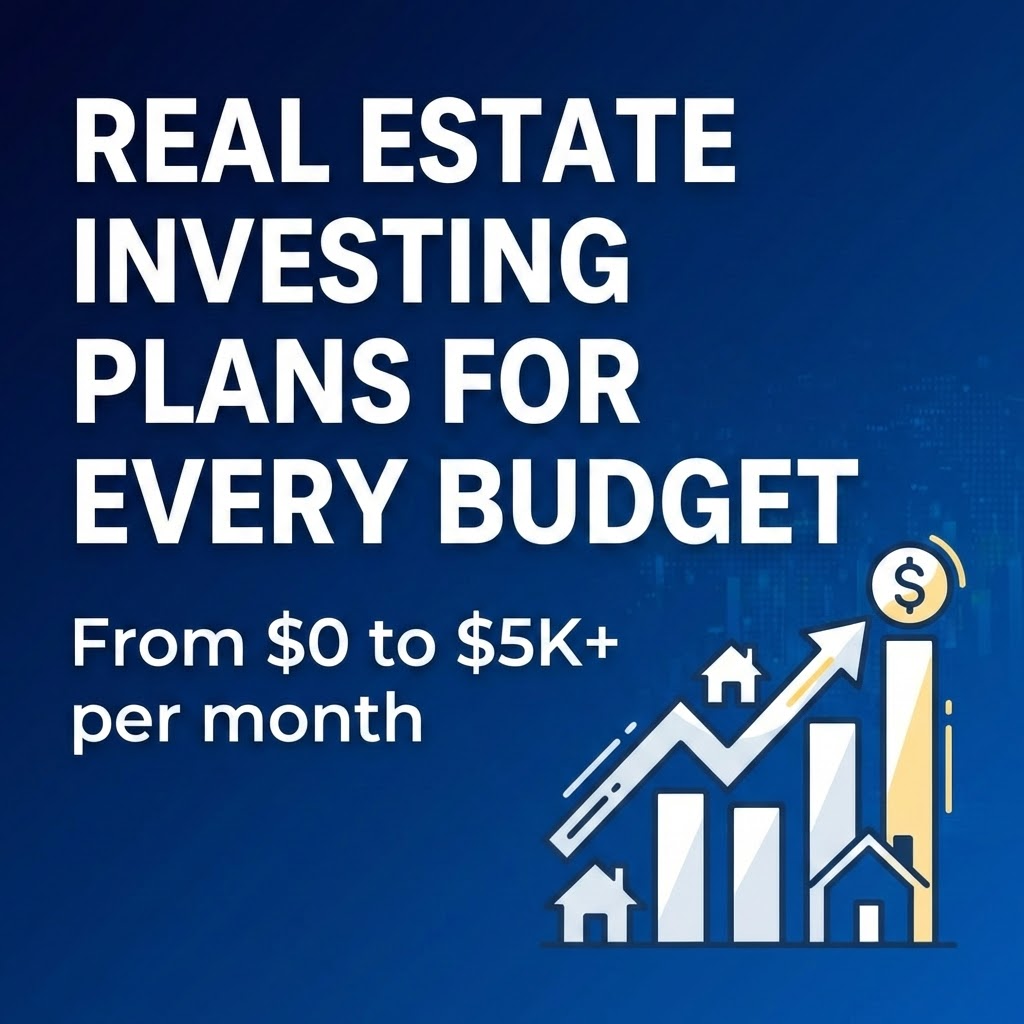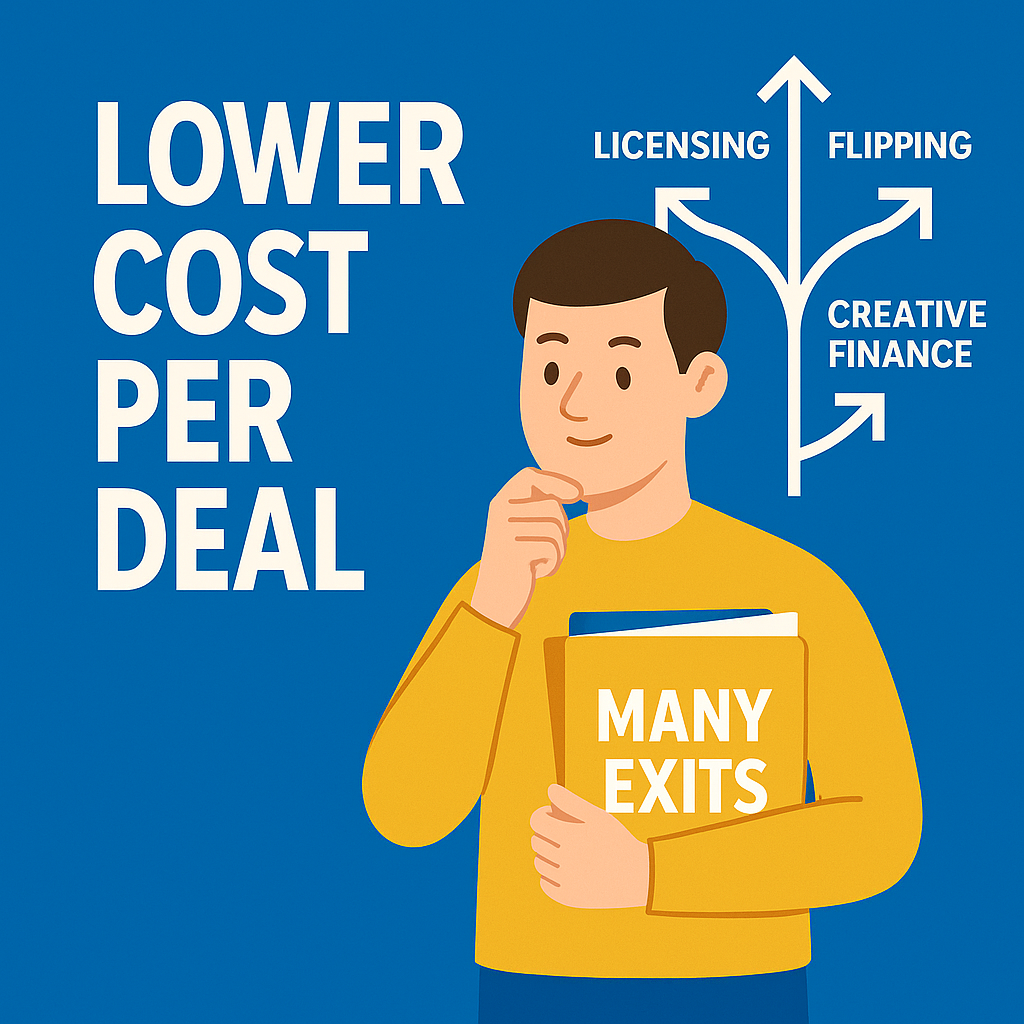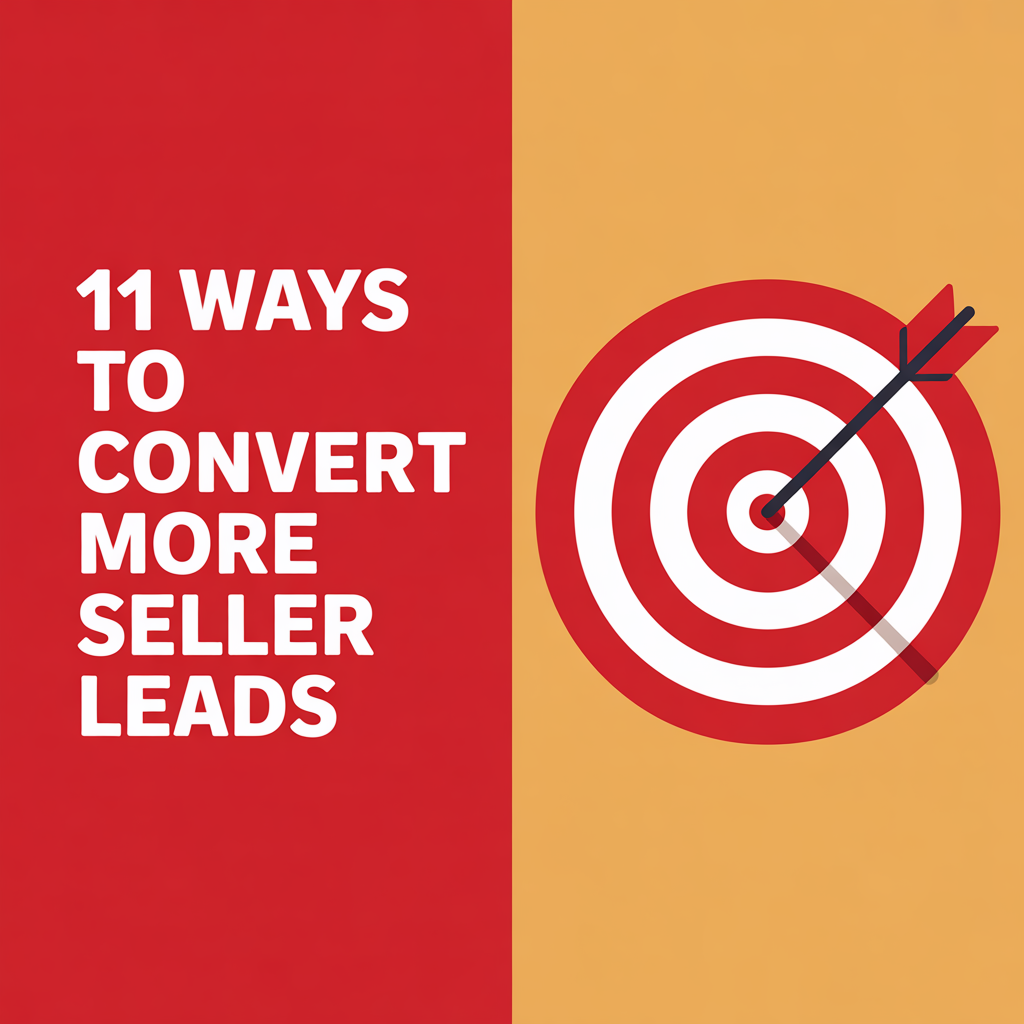How Podcasts Help Real Estate Investors Generate Motivated Seller Leads
In the fast-paced world of real estate investing, generating consistent motivated seller leads while establishing authority can be a tough balancing act. Many investors struggle to get their message out to the right people without sounding like just another marketer. But what if you could speak directly to your audience for 30 minutes—and have them choose to listen?
That’s where podcasts come in. Spencer Carpenter, founder of Outlier Audio, helps real estate investors grow their brand and their business by getting them booked on top podcasts. With over 800 interviews booked for more than 100 clients, Spencer knows what it takes to stand out in a crowded space. In this post, we’ll break down why podcasting is such a powerful marketing tool for real estate professionals and how you can start leveraging it to grow your business.
Why Real Estate Investors Belong on Podcasts
Spencer’s journey from the music industry to podcast marketing was sparked by his appreciation for entrepreneurs as talented storytellers. Most investors don’t see themselves as “talent,” but Spencer argues they should. With the rise of educational platforms like Bigger Pockets, there’s massive demand for investor stories—stories that reveal insights, lessons, and the human side of real estate.
Podcasts give investors a platform to:
- Share their unique strategy
- Build credibility
- Attract capital partners
- Create long-lasting content
Unlike short-form Instagram reels or Facebook ads, podcasts are long-form, voluntary media. Listeners choose to tune in. That means when you appear as a guest, you're speaking to a warm, engaged audience who trusts the host—and is ready to trust you.
The Two Paths: Host vs. Guest
There are two main ways to use podcasts in your marketing: as a guest or as a host.
As a Podcast Host:
- You control the topic and the guest list
- You build a loyal audience over time
- Your brand becomes a resource for others
- You can access high-level individuals who might otherwise ignore your calls but are happy to be interviewed
Bonus Insight: Spencer highlights that podcast hosts often get access to influential guests who would normally never take their call. A podcast interview invite opens doors that cold calls can’t.
As a Podcast Guest:
- You leverage existing audiences
- You’re elevated as an expert by the host
- You save time and effort on production
Spencer encourages real estate investors to start as a guest first. This allows you to refine your messaging and gain confidence in front of the mic—before committing to the responsibilities of running a show.
Why Podcasts Beat Ads for Trust and Conversions
Traditional advertising interrupts your audience. Podcast interviews invite them in. With interviews lasting anywhere from 25 to 60 minutes, you have the opportunity to build a genuine connection with your listeners. And when someone hears your story in your own voice, the trust factor goes way up.
That trust can translate into:
- More off-market deals from motivated sellers
- Passive investors who’ve “gotten to know you” over time
- Stronger referrals from those who respect your insights
Plus, podcast interviews create SEO-friendly content that builds your digital presence. Each podcast episode has a unique title, link, and description—offering better long-term visibility than generic press releases or ads.
And here’s something even more powerful: podcast interviews live forever. If a show gains popularity years later, your old episodes get rediscovered and bring in fresh leads without any new effort from you.
Long-Term Visibility Tip: Spencer explains that unlike paid ads or press releases, each podcast creates evergreen SEO assets that can continue driving traffic years later—especially when shows gain new momentum.
How to Get Booked on Real Estate Podcasts
So, how can you get started? According to Spencer, the secret is all in your pitch.
Here’s what works:
- Lead with value. Start your pitch by showing what you can offer the host’s audience.
- Be specific. Don’t say “I can talk about marketing.” Instead, highlight a case study—like how you earned $100k in wholesale fees while on vacation.
Standout Story: Spencer shared how one wholesaler got booked on multiple shows by showcasing how he earned $100,000 in fees while vacationing. The real angle? Great systems and a trained team—not a gimmick.
- Tailor the message. Avoid generic bios. Focus on the unique angle of your experience.
- Avoid fluff. Trim out irrelevant personal details like hobbies or family info that don’t directly support your message or value.
Spencer’s go-to formula for an email pitch:
- Subject line: Not your name, but a compelling benefit (e.g., “How to automate wholesaling and earn while vacationing”)
- Opening line: What you can discuss and how it benefits their audience
- Topics: 2–3 value-driven themes you can speak on
- Optional: Sample questions and a short, focused bio
And don’t forget—the more niche or fresh your perspective, the more likely you are to stand out.
Also, look for newer podcasts that have only done a few interviews. They are typically more open to booking guests and offer a great low-barrier starting point.
Pro Tip: New or emerging podcasts offer “low-hanging fruit.” They’re more likely to say yes and provide great practice opportunities.
Nervous About Going on a Podcast? Don’t Be.
Podcasting isn’t live TV. It’s a conversation. Many first-time guests worry they need to be polished or performative—but Spencer reassures that the most engaging interviews are real and relaxed.
Podcast hosts are on your side. Their goal is to make you look good and deliver a strong episode for their listeners. Whether you’re a seasoned speaker or an introvert new to sharing your story, podcasts are an accessible platform to build your voice.
Even if you ramble a little or misspeak, it’s okay. Listeners appreciate vulnerability and authenticity. As Spencer explains, some of the best interviews happen when people share personal stories and show their true character.
Mindset Shift: If you’re worried about being introverted or unpolished, remember—it’s just a one-on-one conversation. Most great interviews feel like natural chats, not performances.
What to Do After the Podcast Airs
Your episode doesn’t end when the recording stops. After your interview goes live, here’s how to maximize your impact:
- Leave a five-star review. Help the host grow their show.
- Share the episode on social. Tag the host and use platform-native clips if available.
- Repurpose content. Ask for the raw file and break it into social media clips.
- Email your list. Let your leads and past investors know you were featured. This reinforces your credibility and keeps you top-of-mind.
- Re-engage cold leads. Send the episode link with a personal note. “Thought you might find this interesting” can go a long way.
Reactivation Strategy: Spencer recommends using podcast interviews to re-engage past leads or warm prospects. Send them the episode link and ask for feedback—zero pressure, just value.
Podcast interviews are not only easier to create than original content—they’re also more authentic. They showcase your story in a natural, trustworthy way that pre-sells your value.
And if you’re trying to decide between commercial and multifamily investing, here’s an angle Spencer shared: one guest chose commercial because they didn’t want to manage hundreds of toilets! A simple insight like that can make a podcast interview memorable.
Why Busy Investors Work with Spencer Carpenter
For those who want the benefit of podcast visibility without the time commitment, Spencer offers a done-for-you service through his company, Outlier Audio. His team helps real estate investors:
- Identify the best shows for their goals
- Craft compelling pitches
- Handle outreach and scheduling
- Manage follow-up and episode tracking
With years of experience and a deep understanding of the real estate space, Spencer acts like your personal talent manager—connecting you with the right platforms while you focus on scaling your business.
You can reach him directly at outlieraudio.com or via Instagram @spencercarpenter.
Free Support: Spencer even offers complimentary feedback on your podcast pitch—perfect for beginners looking to improve their outreach.
Final Thoughts: Start Speaking to Scale Your Business
If you're a real estate investor looking to secure more motivated seller leads, raise capital, or build credibility in your market, podcasting is one of the most effective and underused tools available.
Whether you choose to guest on established shows or start your own, the key is to start now. Get your message out there. Share your story. And let your audience come to you.
Key Takeaways from the Blog
- Podcasts are a powerful marketing tool for real estate investors to generate motivated seller leads, build authority, and create long-term content that keeps working for them.
- Spencer Carpenter, founder of Outlier Audio, helps investors get featured on high-value podcasts by crafting unique pitches and handling all outreach and follow-up.
- Real estate investors are “talent”—they have stories, strategies, and experiences that are valuable to others and worth sharing on educational platforms.
- Hosting vs. Guesting:
- As a host, you control the narrative, build an audience, and attract high-level guests who might otherwise ignore your outreach.
- As a guest, you leverage existing audiences and are positioned as a trusted expert by the host.
- As a host, you control the narrative, build an audience, and attract high-level guests who might otherwise ignore your outreach.
- Podcasts build deep trust with an engaged audience in ways that ads and short-form content cannot. Listeners voluntarily tune in for long-form interviews, creating better conversion potential.
- Podcast interviews are evergreen: They continue to deliver SEO value and lead generation long after they air, unlike ads or press releases.
- Being featured on multiple podcasts with unique titles and show notes improves your online visibility and credibility—especially when people Google your name.
- A standout podcast pitch must lead with value. Don’t be generic. Use specific case studies like:
- Earning $100K in wholesale fees while on vacation (via strong systems and team)
- Investing in commercial real estate to avoid plumbing issues tied to multifamily
- Earning $100K in wholesale fees while on vacation (via strong systems and team)
- Avoid fluff in your bio. Skip personal hobbies unless directly relevant. Focus on what sets you apart professionally.
- Pitch newer shows as low-hanging fruit. They're easier to get booked on and offer excellent practice and exposure opportunities.
- Podcasting is ideal for introverts. It’s a one-on-one conversation, not a performance. The more real and vulnerable you are, the better the connection with the audience.
- Post-podcast strategy matters:
- Leave a review for the host
- Share clips and full episodes on social media
- Email your list to reinforce trust and credibility
- Re-engage cold or warm leads by sending them your interview with a casual note
- Leave a review for the host
- Use podcast interviews to stay top-of-mind with your audience without direct pitching—especially when raising money or nurturing leads.
- Content creation is simplified by using podcast appearances as ready-made marketing material (text, video, audio).
- Spencer offers a done-for-you podcast booking service, especially useful for busy investors who don’t have time for research, outreach, or scheduling.
- He also offers free feedback on podcast pitches for those wanting to do it themselves, making him a great resource for beginners and pros alike.
Ready to Grow Your Real Estate Brand?
Start showing up where your audience already listens. Podcasting allows you to build trust, demonstrate authority, and stay top-of-mind—without ever pitching.
Want help getting booked on the right podcasts? Reach out to Spencer Carpenter at Outlier Audio and start building your influence today.






